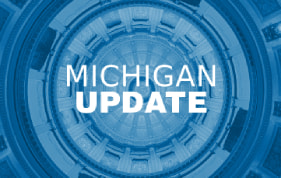A model developed by Health Management Associates (HMA) assesses COVID-19’s potential impact on health insurance coverage for each state and forecasts Medicaid enrollment could increase by 11 to 23 million across all states over the next several months.
1825 Results found.

HMA Review of State Appendix K Waivers in Response to COVID-19
This week, our In Focus section comes from HMA Principals Ellen Breslin (MA) and Sharon Lewis (OR). In direct response to COVID-19, the Centers for Medicare & Medicaid Services (CMS) has encouraged states to maximize Medicaid flexibilities to protect people during the pandemic emergency. This includes state flexibilities for people receiving home and community-based services. States may temporarily amend their Home and Community-Based Services (HCBS) 1915(c) waivers through an expedited process by submitting an Appendix K request. As of March 31, 2020, CMS had approved Appendix K submissions for thirteen states with effective periods ranging from four months to one year.[1] The thirteen states are: Alaska, Connecticut, Colorado, Hawaii, Iowa, Kentucky, Minnesota, New Mexico, Pennsylvania, Rhode Island, Washington, West Virginia and Wyoming.

Webinar Replay: Treatment of Substance Use Disorders During the COVID-19 Pandemic
This webinar was held on April 2, 2020.
The COVID-19 pandemic has significantly impacted the treatment of individuals with substance use disorder (SUD), including changes in the administration of Medications for Addiction Treatment (MAT), new telehealth rules and billing procedures, and other emerging protocols and regulations designed to ensure individuals with SUD continue to receive the best care possible.
During this webinar, HMA addiction experts Scott Haga and Shannon Robinson outlined how providers and patients can best navigate this changing landscape, with a special emphasis on the opportunities and risks associated with treating SUD during the pandemic.
Learning Objectives
- Find out how the COVID-19 pandemic significantly increases the risk of SUD relapse and overdose-related fatalities.
- Understand federal regulatory changes to the practice of prescribing MAT for opioid use disorder, including changes from DEA, SAMHSA, Office of Civil Rights and more.
- Obtain best practices and billing guidelines for the use of telehealth to treat individuals with SUD remotely.
HMA Speakers
Scott Haga, MPAS PA-C, Senior Consultant, Lansing, MI
Shannon Robinson, MD, FASAM, Principal, Costa Mesa, CA
As mentioned in the webinar, the Telehealth Readiness Questionnaire is also available.

Webinar Replay: Telehealth and the COVID-19 Response: Policy Changes and Implementation Strategies
This webinar was held on March 31, 2020
Telehealth services have become a key strategy for expanding access to care during the COVID-19 pandemic, driven in part by significant changes in laws and regulations to encourage the adoption of technologies that support telehealth. With these rapid changes, providers are struggling to understand how to best serve their patients using telehealth technologies.
During this webinar, HMA experts described the different modalities of telehealth and laid out the policy and reimbursement implications for the Medicare and Medicaid programs. Speakers detailed changes to HIPAA enforcement and policy changes that ensure ongoing support for prescribers and recipients of controlled substances. The webinar also reviewed how recent policy changes impact key provider decisions with regards to selecting, implementing, and building a business case for new telehealth services to support patients during the pandemic.
As mentioned in the webinar, the Telehealth Readiness Questionnaire is also available.
Learning Objectives
- Understand the different modalities of telehealth services and how to bill for them.
- Find out about recent changes in Medicare and Medicaid reimbursement policy stemming from the COVID-19 response.
- Learn the key steps in selecting a telehealth platform, building a business case, adapting workflows, and other implications for physician practices.
HMA Speakers
Jean Glossa, MD, Managing Principal for Clinical Services, Washington, DC
David Bergman, MPA, Principal, New York
Zach Gaumer, Senior Consultant, Washington, DC

D-SNP 2021 Hospital and Skilled Nursing Facility Admission Data Sharing Requirements: States and Health Plan Opportunity to Support Care Transitions
This week, our In Focus section provides an overview of new requirements and opportunities for states and Medicare Advantage (MA) Dual Eligible Special Needs Plans (D-SNPs) to increase Medicare and Medicaid coordination in plan year 2021. Specifically, states and health plans will need to partner for compliance with calendar year (CY) 2021 Medicare Advantage Dual Eligible Special Needs Plan (D-SNP) data sharing requirements for D-SNPs that are not designated as a fully integrated D-SNP (FIDE SNP) or a highly integrated D-SNP (HIDE SNP)[1]. CY 2021 State Medicaid Agency Contracts (SMACs) with these D-SNPs must document the notification process for sharing hospital and skilled nursing facility (SNF) admissions for at least one group of high-risk enrollees.[2]

HMA Article Highlights Value-Based Payment Models
With a focus on value-based payment (VBP) models and helping primary care practices prepare for a value-driven future, HMA experts Suzanne Daub, Caroline Rosenzweig and Meggan Christmas Schilkie will publish their article in the American Psychological Association journal Families, Systems & Health.

Framework examines behavioral health crisis diversion facilities
Individuals with behavioral health needs often find themselves involved with law enforcement or in hospital emergency rooms during times of crisis. Health Management Associates (HMA) has released a model framework examining a third option for care – Crisis Diversion Facilities.

Medicare and Medicaid Flexibilities During Public Health Emergencies
This week, our In Focus comes from HMA Vice President Kathleen Nolan and Managing Principal Jon Blum. On March 13, 2020, President Trump declared a national emergency due to the rapid spread of COVID-19 virus. This declaration provides Health and Human Services (HHS) and the Centers of Medicare and Medicaid Services (CMS) new abilities to waive Medicare and Medicaid regulatory requirements to help health care providers, health plans and other stakeholders respond to immediate needs of their patients and communities. In the past, HHS and CMS have solicited requests for relief needs from states, local providers and trade associations, among other stakeholders. Health care providers, health plans and others should continue to monitor policy announcements from HHS and CMS and work with their states and trade associations to identify potential areas of need for requested regulatory relief.

